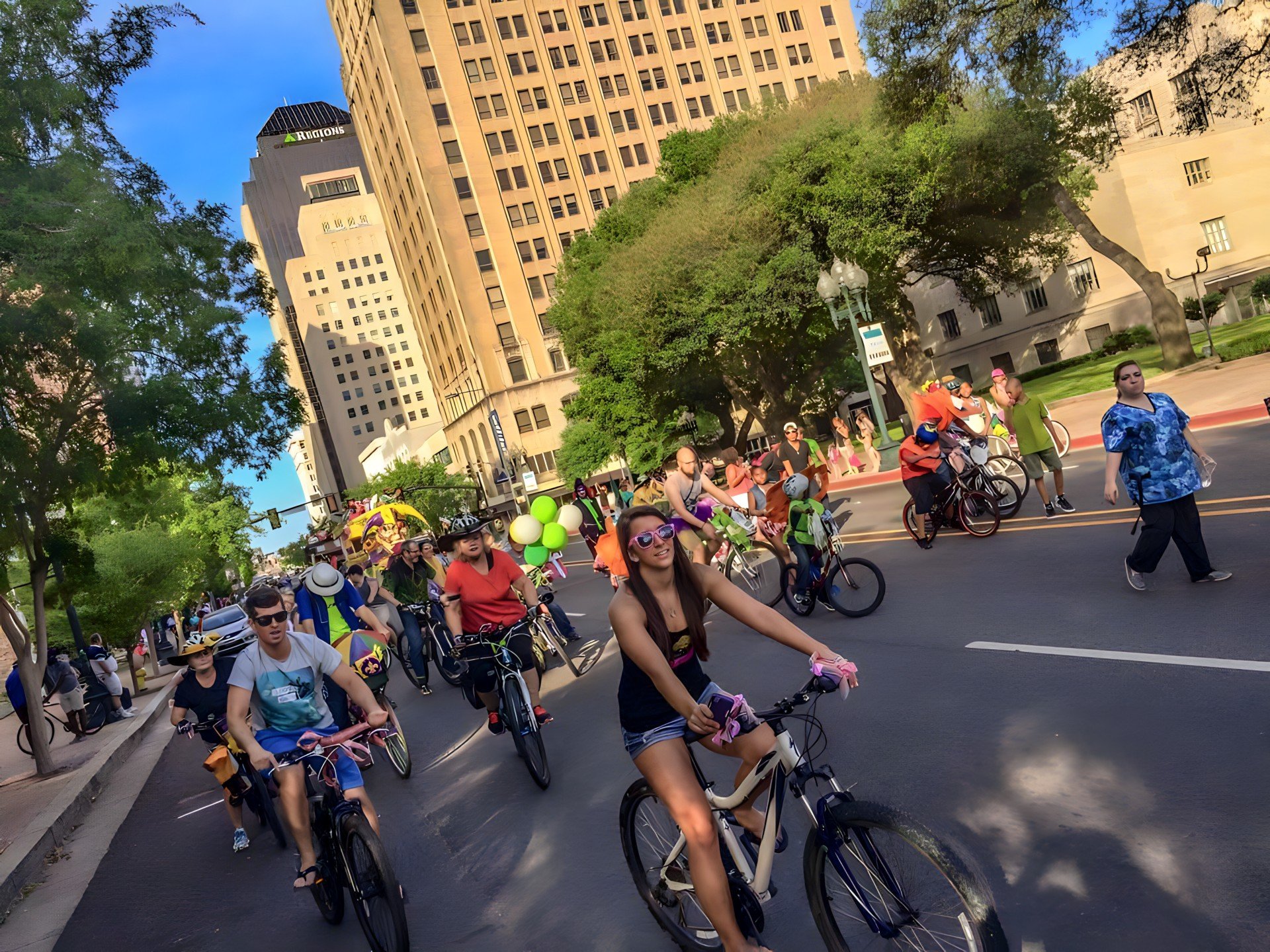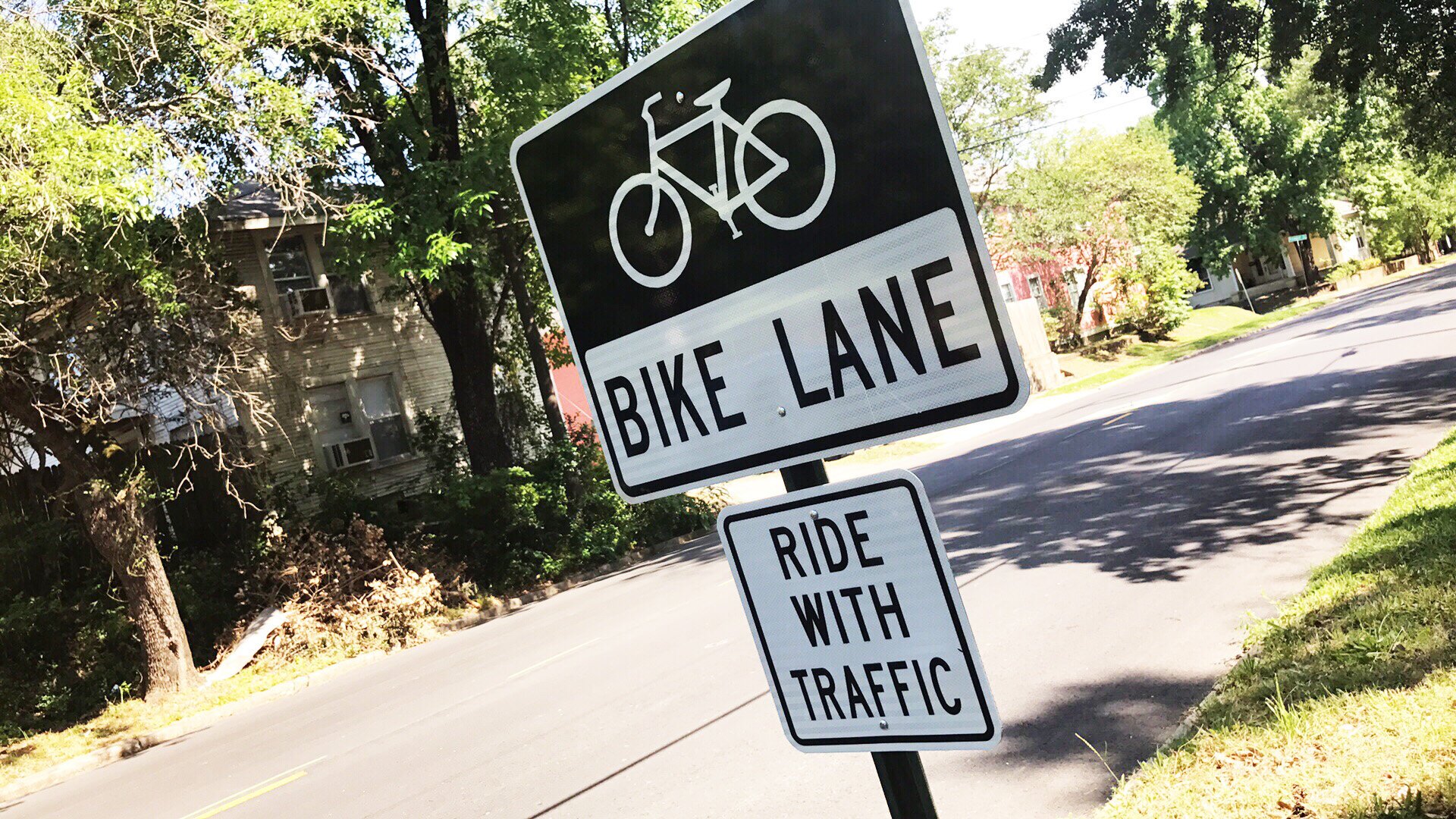
Bikeway Pilot Program
ReForm’s origins in Bike Shreveport
The first time several of the ReForm members met was at a 2016 presentation of the Caddo Parish/Shreveport Bicycle and Pedestrian Master Plan developed by Special Projects Manager for Bowman-Melton and Associates Bud Melton along with Caddo Administrator Dr. Woody Wilson, Commission President Matthew Linn, Chris Petro (NLCOG), Stephen Pederson (Bike Shreveport), JD Allen (Alliance Transportation Group), Kent Rogers (NLCOG) and others at various government levels along with cyclist input.
In 2016, the Caddo Parish/Shreveport Bicycle and Pedestrian Master Plan was accepted by the local governing bodies, and the connections made at the presentation event would ultimately lead to the formation of ReForm in October of that same year.
Then-city council member Jeff Everson noticed that several of the streets scheduled for resurfacing overlapped with the bikeway plan. He then lobbied the administration to use this as an opportunity to begin implementation of the Bike-Ped Master Plan. Mayor Ollie Tyler agreed and turned the project over to engineering whose responsibility it would become to find a way to squeeze funds for “striping” and marking the paths as well as placing signage for the new bikeways within the original budget. What this means in practice is that, through critical thinking and smart allocation of resources, the Bikeway Pilot Program would come at virtually no cost to the taxpayer while providing an additional amenity for the community at the same time. Members of Bike Shreveport and the newly-founded ReForm Shreveport sketched out a suggested approach to implementing bikeways using the available resources allocated to the resurfacing project using tools like StreetMix. The proposed plans were adapted by the city’s engineering project manager Andy Glasgow into an official plan that would be proposed to the biking community and the neighbors adjacent to the proposed bikeways.
Alternative transportation is a means of increasing quality of life.
From a citizen engagement perspective, the promotion of cycling as a form of transportation and recreation was primarily driven by Stephen Pederson. He and the dedicated riders in Bike Shreveport organized rides, advocated for involvement of the citizens in discussions about biking for transportation and recreation, and created videos promoting the awareness of Shreveport’s existing, but limited, bike infrastructure.
In early 2017, plans were underway at the City of Shreveport for a street resurfacing project. The full resurfacing plan was budgeted at $46 million to be spent over two years to improve Shreveport roadways and was called “the most aggressive citywide street improvement efforts in Shreveport’s history.”
Communicating the message to residents.
Bike Shreveport, members of ReForm Shreveport, along with Garrett Johnson and Madison Poche at Heliopolis Magazine worked to engage the community with written articles, social media discussions and attendance of city-organized listening sessions where the plans were presented, discussed, ripped apart, and rebuilt by riders and residents until a consensus was reached. The first phase of the bikeway program was implemented in April of 2017. This rollout was paired with an awareness campaign designed by Bike Shreveport and members of ReForm Shreveport that included door hangers for the areas around the bikeways as well as billboards and social media awareness efforts.
What’s been accomplished and what’s left to do.
In 2018, additional streets were earmarked for resurfacing and, after several back-and-forth conversations, a second round of bike lanes were implemented. Discussions have already taken place with LaDOTD about further implementation along rights of way controlled by the State of Louisiana.
By many measures, the Bikeway Pilot Program was a success in community participation through identification and engagement of a variety of stakeholders and focusing on an incremental development approach. A chance was taken at the soonest opportunity and lessons about everything from the process of community feedback to maintenance were learned. Though some challenges still exist, such as the maintenance of a debris-free bikeway, this small program allowed Shreveport to battle test ideas and ideologies that will inform future development of the bikeway infrastructure going forward











